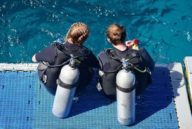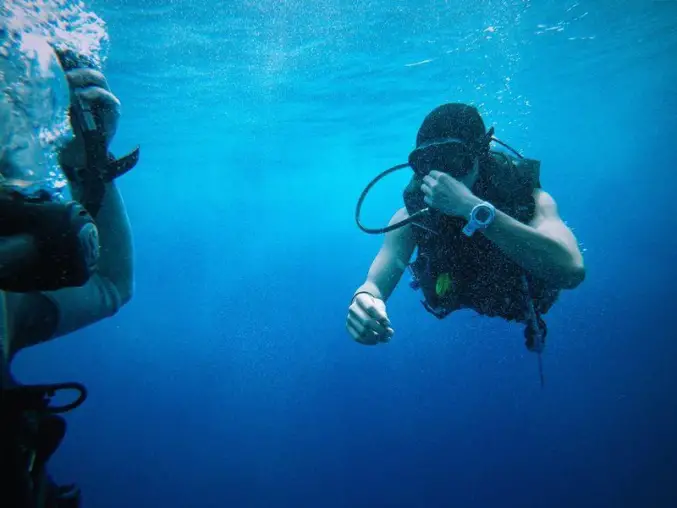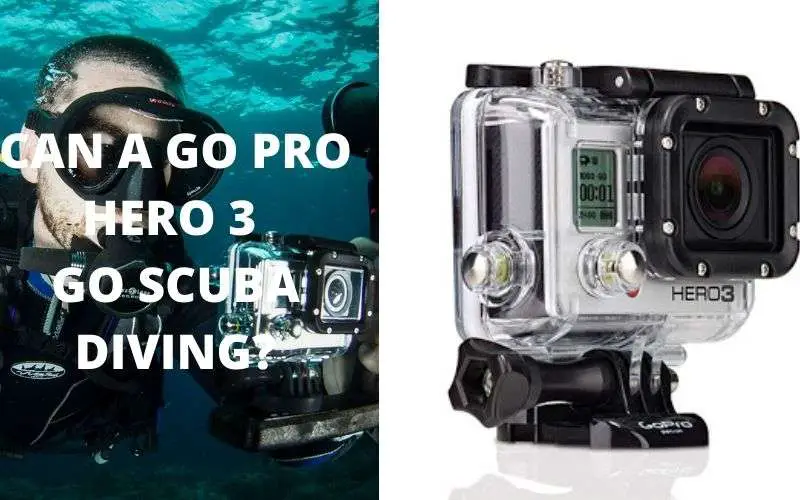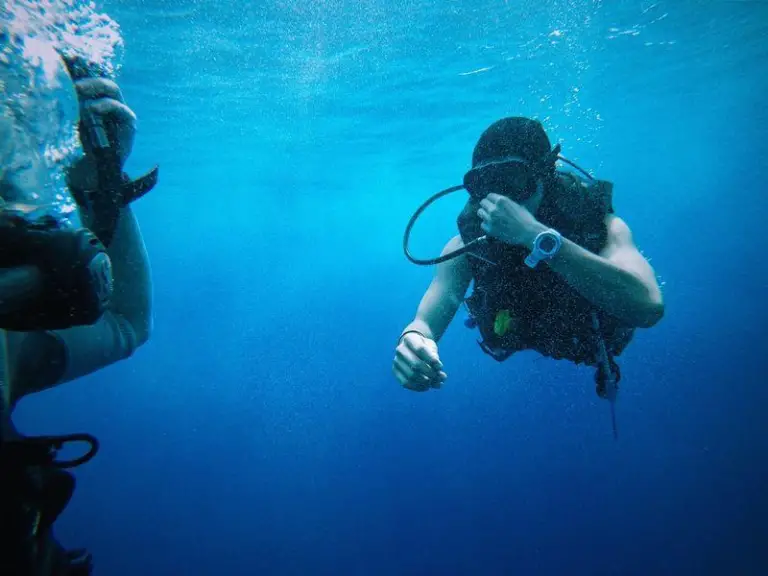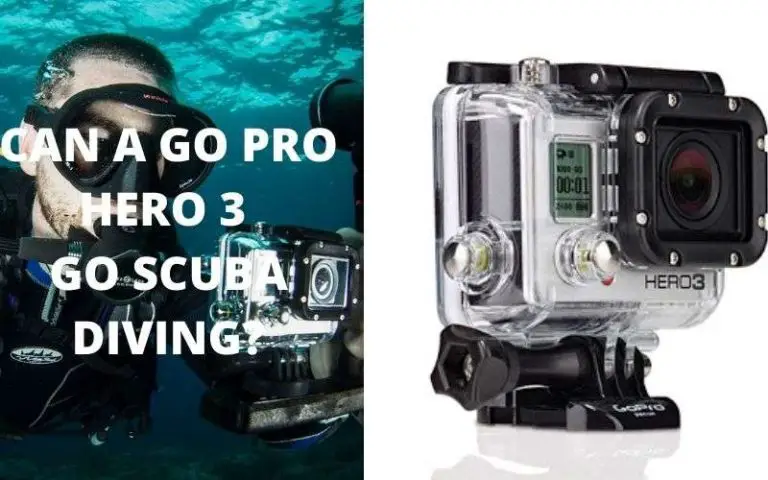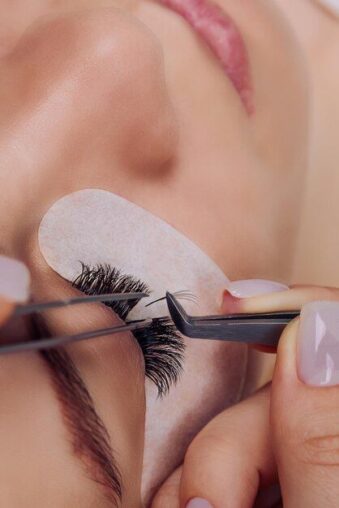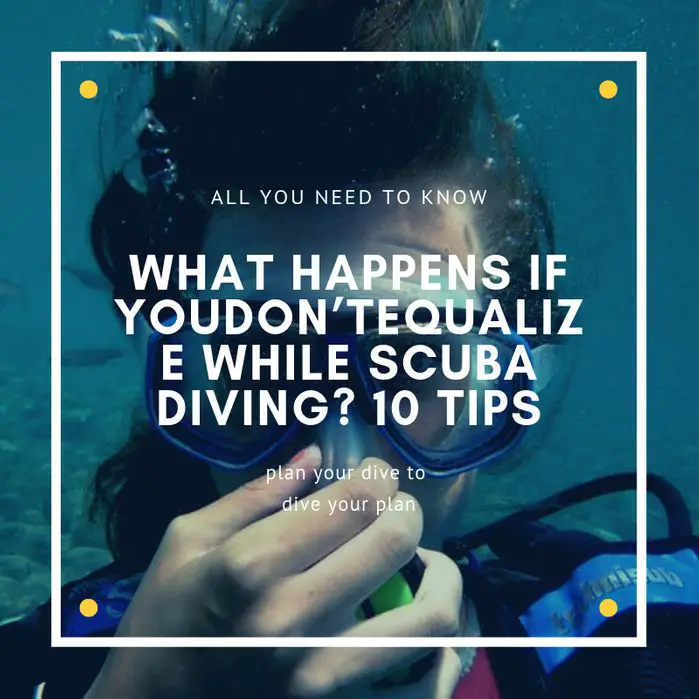
Well, scuba diving is indeed a hell of a fun but it isn’t a kid’s game either. It needs specialized training and practice of the skill.
It asks you to know all the tricks and rules to follow ahead while diving.
Absence or unfamiliarity with any of the tricks and things you need to be careful about, can lead to serious consequences like from small to major injuries. And among the injuries rising from the diving the most common are the ear injuries. The ear can be proceeding though by simple steps and few precautions.
The outer, inner and middle ear. The middle ear is the dead air space that connects the outer and inner ear. Now just remember this it is very important to match the pressure in your middle ear equal to that of outer and inner ears.
This process of leveling the pressures or slightly raising the pressure in the middle ear is called the equalization. Now why is equalizing that important in scuba diving? What happens if we don’t equalize? These are the questions I would try to answer today.
so, let’s move ahead.
What happens if you don’t equalize while scuba diving?
If you don’t equalize during diving there are chances that your inner ear tubes are shut locked by pressure differential and they can get injured.
So, if your ears start hurting you at any point in the time you should try equalizing by ascending a few feet. However, if you fail to equalize during ding that is what is doing to happen.
Helpful TIPS TO REMEMBER ALWAYS When EQUALIZING
One the most important thing to take care of while diving is of methods of equalization. Now it is important to understand what do you mean by equalization? You ear is divided into three parts.
- Equalize early and often
- If you have symptoms of ear problem, congestion or cold; do not dive.
- Do no panic because it puts you in more danger
- Tune up with the water if you are out of the water for too long
- Start equalizing your ears few hours before the dive to help decrease the chances of block during early descent
- Look up to extend your neck in order to open your Eustachian tube.
- Stop if it hurts
- Avoid tobacco and alcohol because they irritate your muscle membranes, promoting more mucus that can block ud Eustachian tubes
- Keep your mask clear
- Practice, practice and practice.
1. Pressure built up:
As you start diving the pressure against your inner ear and they flex inward and one fells pressure building up on the ears. As you go farther and farther the pressure on ear increases and this increased pressure increases the damage to the ears.
In initial depth the increases pressure of about 0.445 psi causes eardrums to flex inward and divers start feeling pressure building up against the ear.
2. Nerve stretch and pain
At further depth, the pressure difference increases up to 1.78 psi the eardrum bulges tower the inner ear and results in the stretching of the eardrum and the this stretched nerves are reason divers start feeling pain.
3. Barotrauma
At the depth of about 8 feet the pressure difference is 4.45 psi. the pressure as high as this one can cause the the eardrum to tear apart, called barotrauma, and thus making the pathway for water to enter the middle ear. This tearing of eardrum and water flow in the ear can cause the vertigo.
But this is not the permanent state and it goes away as soon the accumulated water starts to warm up. Another way to prevent this condition is by closing the nostrils by pinching it and blowing hard and long. But it can sometimes cause permanent damage to ear leading to hearing loss.
4. Equalizing
Equalizing helps you to prevent ear injury, temporary or permanent. Equalizing prevents the closing of ear, keeps the lower and of Eustachian tubes open and thus prevents the air entry in the ear and in return the rupture of the ear membrane.
What is common METHODS To EQUALIZE
1. Valsalva manoeuvre
It is the simplest and the easiest method to learn and apply. You just need to pinch your nose so that both the nostrils are closed properly and then just blow through the nose as hard as you can. The pressure builds up in your thorax and this pressure helps to keep the Eustachian tube open.
2. swallowing:
Swallowing is another method to prevent the ear trauma during diving. The purpose of swallowing is so also to keep the Eustachian tubes open and prevent extra built up of damaging pressure difference.
3. Pinch and swallow
block your nostrils by the pinch of two fingers and swallow simultaneously. What happens is when you swallow the Eustachian tube opens up due to the movement of your tongue and closing the nose simultaneously pushes the air towards the tube.
What Is Perfect Time TO EQUALIZE While Diving
what the expert suggest is that there are no fixed rules about when to equalize. but there are few tips which can help. They recommend equalizing every two feet of descent in the water. Equalize for about 60 seconds after every 60 feet/min descend speed, if you descend faster pace up the equalization like wise.
But as the depth of the dive increases the requirement to equalize decreases. That means the deeper you go the less frequently you have to dive. Once you reach the maximum depth equalize again as the pressure may be very small but if remain uncouped for few more minutes it can cause damage.
That is all you need to know about what happens if you do not equalize timely and how to equalize by different methods and dos and don’ts of the diving and equalizing. So, the next time you dive in I now hope to see back alive and healthy with intact hearing and damage free ears. Happy diving…
Do you know at what age can you scuba dive??

